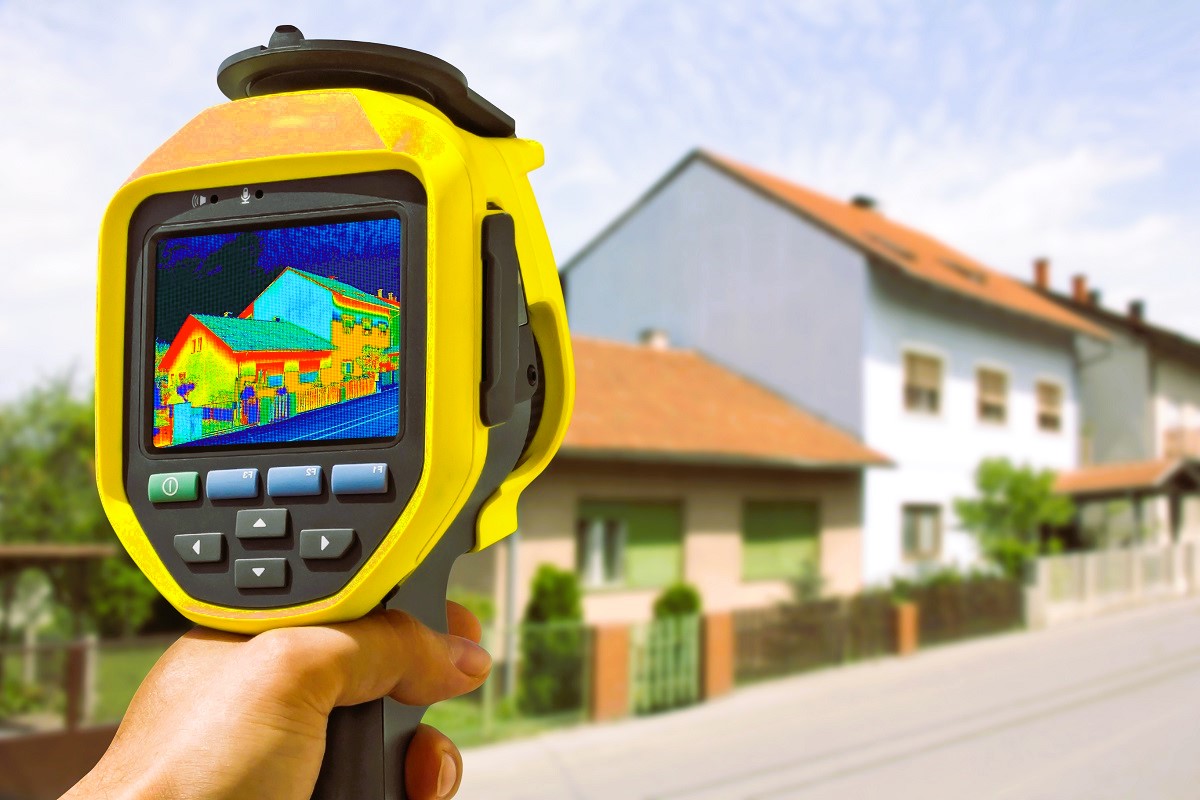Home inspection is a crucial step in the process of buying or selling a home, providing valuable insights into the condition of the property and identifying potential issues that may need attention. Over the years, advancements in technology have revolutionized the home inspection industry, enabling inspectors to conduct more thorough, accurate, and efficient inspections. In this article, we’ll explore the latest innovations in home inspection tools and technology, their benefits for inspectors and clients, and their role in improving the overall inspection process.
1. Thermal Imaging Cameras
Thermal imaging cameras have become indispensable tools for home inspectors, allowing them to detect temperature variations and identify potential issues that may not be visible to the naked eye. By capturing infrared images of the property, thermal imaging cameras can reveal hidden moisture intrusion, electrical hotspots, insulation deficiencies, and HVAC system anomalies. These cameras provide valuable insights into the property’s condition and help inspectors prioritize areas for further investigation.
2. Drones

Drones have transformed the way home inspections are conducted, especially for properties with complex roof structures or difficult-to-access areas. Equipped with high-resolution cameras, drones can capture aerial images and videos of the property, providing inspectors with detailed views of the roof, chimney, gutters, and other elevated features. Drones enable inspectors to assess roof conditions safely and efficiently, identify potential defects or damage, and provide clients with comprehensive inspection reports.
3. Moisture Meters
Moisture meters are essential tools for detecting moisture levels in building materials, such as wood, drywall, and concrete. Excessive moisture can indicate water intrusion, leaks, or plumbing issues, leading to mold growth, structural damage, and other problems. Moisture meters enable inspectors to pinpoint areas of concern, assess the extent of moisture damage, and recommend appropriate remediation measures. Advanced moisture meters may also include built-in temperature and humidity sensors for more accurate readings. With growing demand for green home inspections, we have sustainable solutions for Canadian homes.
4. Mobile Inspection Software
Mobile inspection software has streamlined the inspection process by replacing traditional paper-based forms with digital reporting tools. Inspectors can use mobile devices, such as smartphones or tablets, to capture photos, record observations, and generate inspection reports on-site. Mobile inspection software offers customizable templates, checklists, and templates, enabling inspectors to create detailed and professional reports quickly. These reports can be shared with clients electronically, providing them with immediate access to inspection findings and recommendations.
5. Radon Detectors
Radon is a colorless, odorless gas that can seep into homes from the ground and pose serious health risks to occupants. Radon detectors are specialized devices designed to measure radon levels in indoor air and provide accurate readings of radon concentrations. Home inspectors use radon detectors to assess radon levels in homes and recommend mitigation measures if elevated levels are detected. Advanced radon detectors may offer continuous monitoring capabilities and real-time data logging for more comprehensive radon testing.
6. Artificial Intelligence (AI) and Data Analytics

Artificial intelligence and data analytics are revolutionizing the home inspection industry by analyzing vast amounts of inspection data and identifying patterns, trends, and anomalies. AI-powered inspection software can analyze images, videos, and sensor data to detect defects, assess their severity, and prioritize recommendations for repairs or maintenance. By leveraging AI and data analytics, inspectors can enhance the accuracy and efficiency of inspections, reduce manual workload, and provide clients with more actionable insights into the property’s condition.
Benefits of Latest Innovations in Home Inspection Technology
The latest innovations in home inspection tools and technology offer numerous benefits for inspectors, clients, and industry stakeholders:
- Improved Accuracy: Advanced tools such as thermal imaging cameras and moisture meters enable inspectors to detect hidden defects and assess the property’s condition with greater precision.
- Enhanced Efficiency: Mobile inspection software and drones streamline the inspection process, allowing inspectors to conduct inspections more efficiently and generate reports quickly.
- Greater Safety: Drones and remote inspection technologies reduce the need for inspectors to access hazardous or hard-to-reach areas manually, improving safety and minimizing risks of accidents or injuries.
- Comprehensive Reporting: Digital reporting tools and AI-powered analysis software enable inspectors to create detailed and professional inspection reports, providing clients with comprehensive insights into the property’s condition and recommendations for maintenance or repairs.
- Client Satisfaction: By leveraging the latest technology, inspectors can deliver more thorough, accurate, and timely inspection services, enhancing client satisfaction and confidence in the inspection process.
In conclusion, the latest innovations in home inspection tools and technology are transforming the way inspections are conducted, providing inspectors with advanced capabilities to assess properties accurately and efficiently. From thermal imaging cameras and drones to mobile inspection software and AI-powered analysis tools, these innovations offer numerous benefits for inspectors, clients, and industry stakeholders. By embracing these advancements, home inspectors can enhance the quality of their services, improve client satisfaction, and contribute to the overall safety and integrity of the real estate market. For more information on home inspection tools and technology, visit Canada.ca.

